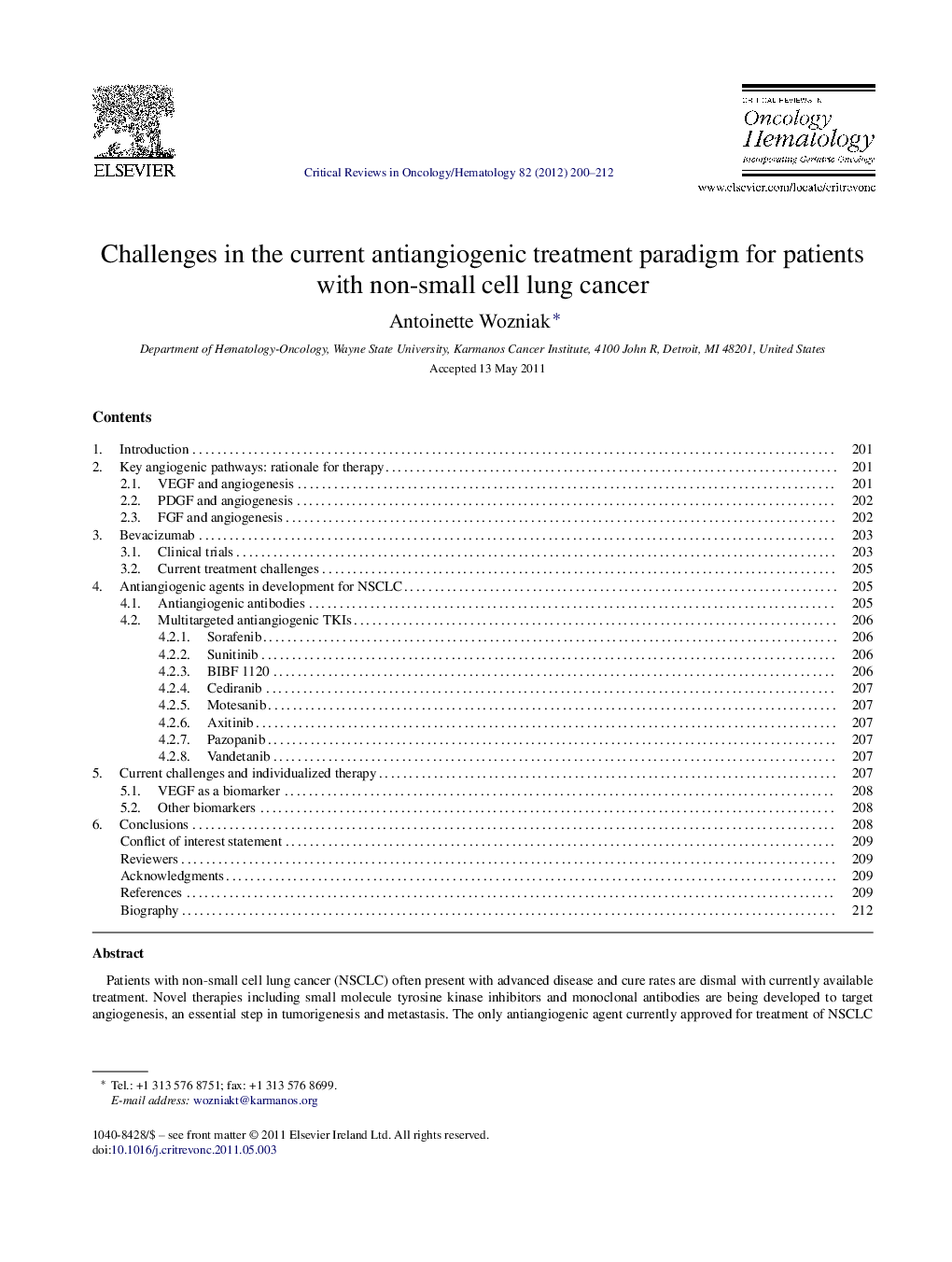| Article ID | Journal | Published Year | Pages | File Type |
|---|---|---|---|---|
| 3329073 | Critical Reviews in Oncology/Hematology | 2012 | 13 Pages |
Patients with non-small cell lung cancer (NSCLC) often present with advanced disease and cure rates are dismal with currently available treatment. Novel therapies including small molecule tyrosine kinase inhibitors and monoclonal antibodies are being developed to target angiogenesis, an essential step in tumorigenesis and metastasis. The only antiangiogenic agent currently approved for treatment of NSCLC is bevacizumab, although numerous other antiangiogenic inhibitors (e.g., sorafenib, sunitinib, cediranib, motesanib, BIBF 1120) are in clinical trials. Individualized treatment algorithms may improve patient outcomes and new evidence suggests that biomarkers may guide treatment decisions. We present an overview of the molecular pathways involved in angiogenesis, discuss clinical trials of bevacizumab and developmental antiangiogenic agents, and address the challenges of developing individualized treatment paradigms for NSCLC, particularly the use of biomarkers.
